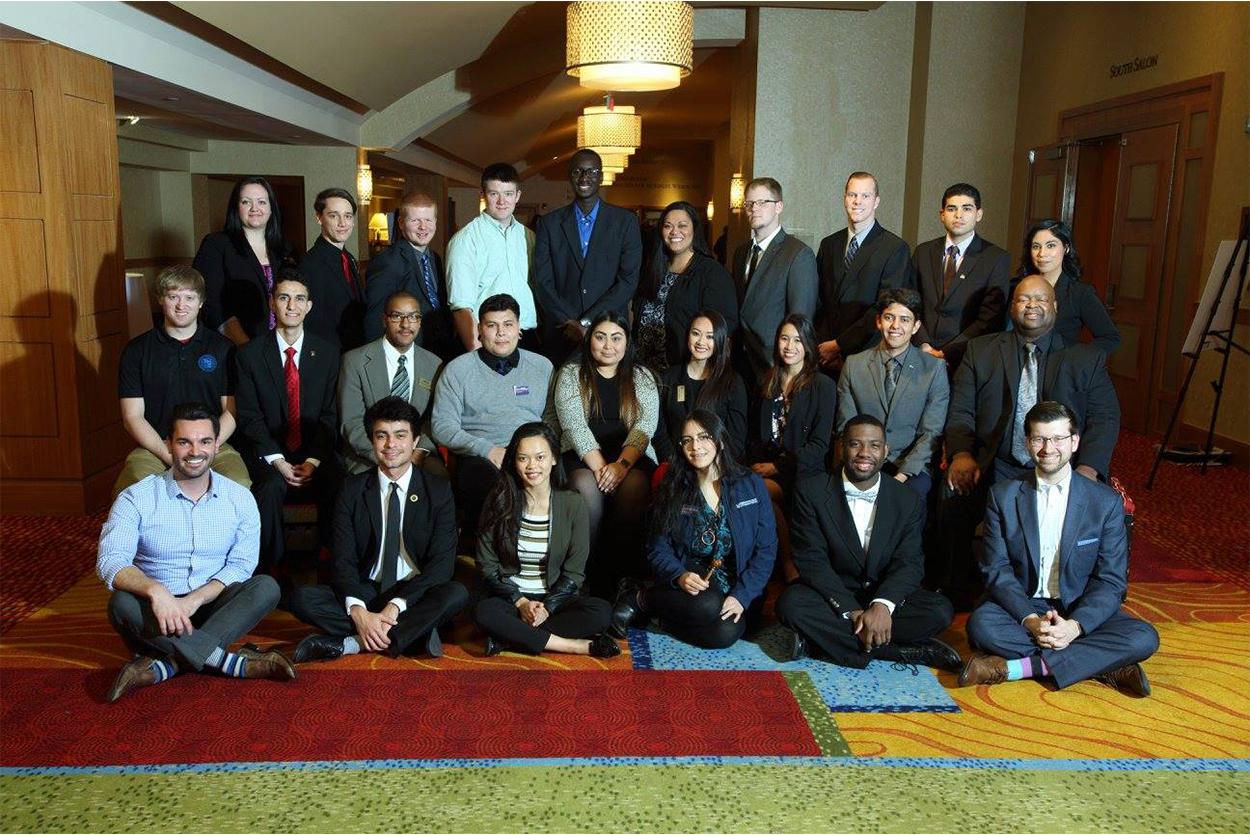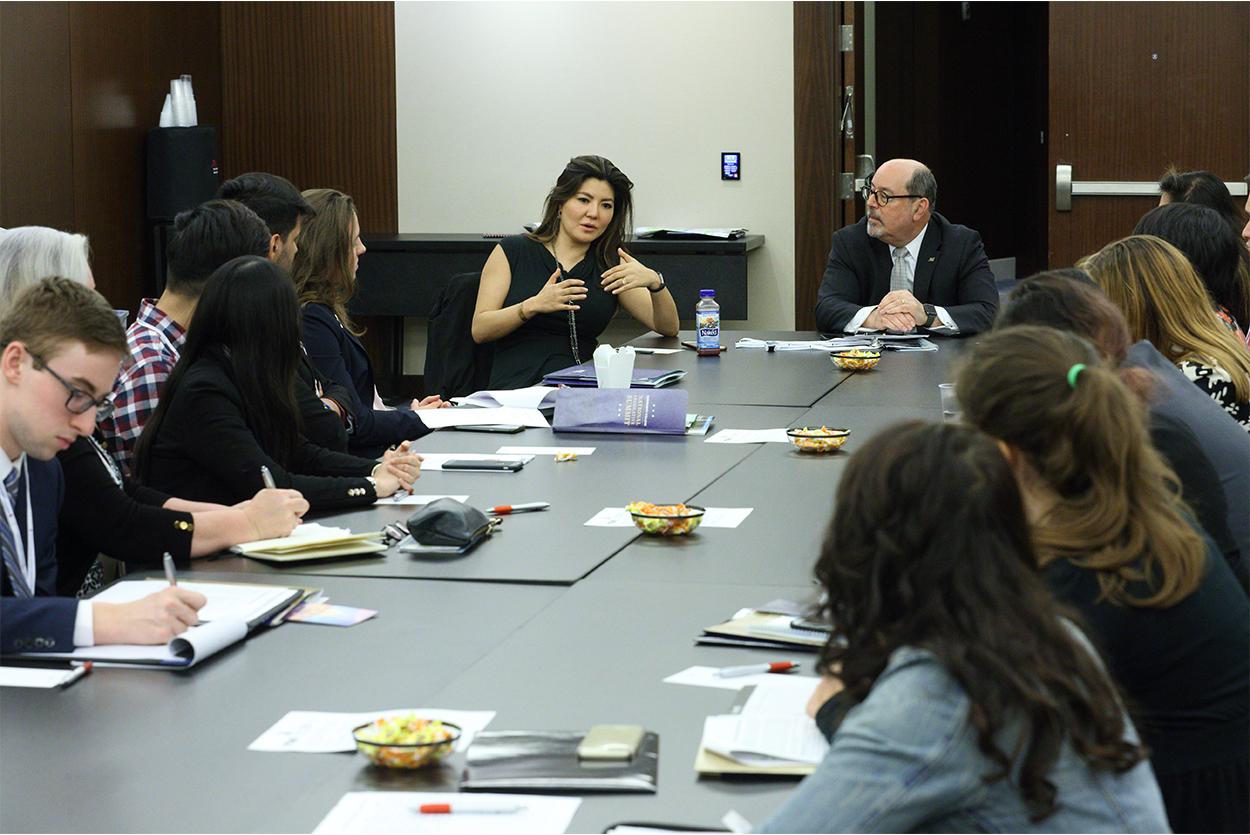Student trustees are among the most critical, yet underused, resources on a community college campus. Although student trustees’ roles vary from college to college, the primary role of all student trustees is to bring the perspectives of students into the board room. While this may seem like a straightforward task, in my experience serving as the 2016-17 student trustee at Pasadena City College, serving as the voice of 30,000 students can be challenging.
Community colleges have diverse student bodies, attracting students of different ages, backgrounds, and passions. No two students are the same, meaning that each student has a unique set of circumstances and needs. Within my first week as student trustee, I realized that my understanding of the student body was limited to my perspective and did not fully encompass the range of students’ needs on campus. I decided to create a Student Trustee Ad-Hoc Committee comprised of 12 students representing different groups on campus. We held weekly meetings to discuss the issues being brought forward to the board, hosted on-campus events to gain student feedback, and expanded our understanding of what's really on students’ minds. Throughout my term, one issue remained consistent among most students: college affordability. In fact, the issues we found were all financial: food, transportation, and textbook costs dominated the list.
This comes as no surprise to those in the know. According to ACCT President and CEO J. Noah Brown, well over a third of community college students are on some type of student financial assistance. “A good percentage of our students do not have the financial resources to attend college without some kind of help,” he says.
Sharing Student Perspectives
Student trustees can use their positions to address college affordability effectively. According to Brown, the first step student trustees should take is to “ensure that students’ perspectives and needs are part of the equation when decisions are made institution-wide.”
Addressing a board of trustees can be intimidating to a student. But like any other trustee, your voice can make a difference. It’s important to recognize that your input matters and overcome the doubts you may have about speaking up. This doesn't mean that everything will always go your way, but you won’t know unless you take a chance. Participate in board discussions and don’t be afraid to ask the hard questions. To help the board understand your perspective, consider inviting them to campus events, student meetings, and other environments where trustees can interact with the student body. The same applies to students, who can attend board meetings and share their stories during the time for public comment.
Student leaders cannot make progress if they don't communicate the needs of their peers. It is the student trustee’s responsibility to communicate student needs. By bringing information to the board, you are working with the system and exemplifying traits of an effective student trustee.
Student trustees are among the most critical, yet underused, resources on a community college campus. Although student trustees’ roles vary from college to college, the primary role of all student trustees is to bring the perspectives of students into the board room. While this may seem like a straightforward task, in my experience serving as the 2016-17 student trustee at Pasadena City College, serving as the voice of 30,000 students can be challenging.
Community colleges have diverse student bodies, attracting students of different ages, backgrounds, and passions. No two students are the same, meaning that each student has a unique set of circumstances and needs. Within my first week as student trustee, I realized that my understanding of the student body was limited to my perspective and did not fully encompass the range of students’ needs on campus. I decided to create a Student Trustee Ad-Hoc Committee comprised of 12 students representing different groups on campus. We held weekly meetings to discuss the issues being brought forward to the board, hosted on-campus events to gain student feedback, and expanded our understanding of what's really on students’ minds. Throughout my term, one issue remained consistent among most students: college affordability. In fact, the issues we found were all financial: food, transportation, and textbook costs dominated the list.
This comes as no surprise to those in the know. According to ACCT President and CEO J. Noah Brown, well over a third of community college students are on some type of student financial assistance. “A good percentage of our students do not have the financial resources to attend college without some kind of help,” he says.
Sharing Student Perspectives
Student trustees can use their positions to address college affordability effectively. According to Brown, the first step student trustees should take is to “ensure that students’ perspectives and needs are part of the equation when decisions are made institution-wide.”
Addressing a board of trustees can be intimidating to a student. But like any other trustee, your voice can make a difference. It’s important to recognize that your input matters and overcome the doubts you may have about speaking up. This doesn't mean that everything will always go your way, but you won’t know unless you take a chance. Participate in board discussions and don’t be afraid to ask the hard questions. To help the board understand your perspective, consider inviting them to campus events, student meetings, and other environments where trustees can interact with the student body. The same applies to students, who can attend board meetings and share their stories during the time for public comment.
Student leaders cannot make progress if they don't communicate the needs of their peers. It is the student trustee’s responsibility to communicate student needs. By bringing information to the board, you are working with the system and exemplifying traits of an effective student trustee.
This summer, I had the opportunity to work on the College Promise Campaign in Washington, D.C., alongside a passionate group of people ready to make a difference. Our team understands the power that community colleges have to increase economic opportunity and to give students a second chance. The campaign is building broad public support for communities and states to make the first two years of community college as universal and free as high school has been for a century. This movement directly addresses the concerns brought to my attention by students on my own campus during my term as a student trustee: affordability. It’s almost unheard of in the United States for any student not to be able to afford high school. Why should two years of college be out of reach for anyone?
The movement driving Promise programs is now fully underway throughout the country, in small towns and counties, in cities and in rural regions. There are 200-plus Promise programs up and running, with new initiatives developing weekly. The programs span 44 states, including 23 statewide programs. This is happening now; the momentum for movement is increasing every day because making college affordable should be a priority and a reality. It shouldn’t matter if you’re a recent high school graduate, a first-generation student, a veteran, or a mother of three. If you want to go to college, cost should not stand in the way. I heard this message from my peers while I served on the Pasadena City College board, and it was exciting to serve alongside leaders who are addressing this challenge head on for all students across the country.
I will carry these experiences and the spirit of my transformative time at community college with me as I move ahead in life. My present adventure will be at Yale University, thanks in great part to what I learned in both the classrooms and the board room at a community college.
Nune Garapian is one of four community college transfer students who were accepted into Yale University. She is a rising junior, pursuing a degree in political science with plans to go into public service following her college career


